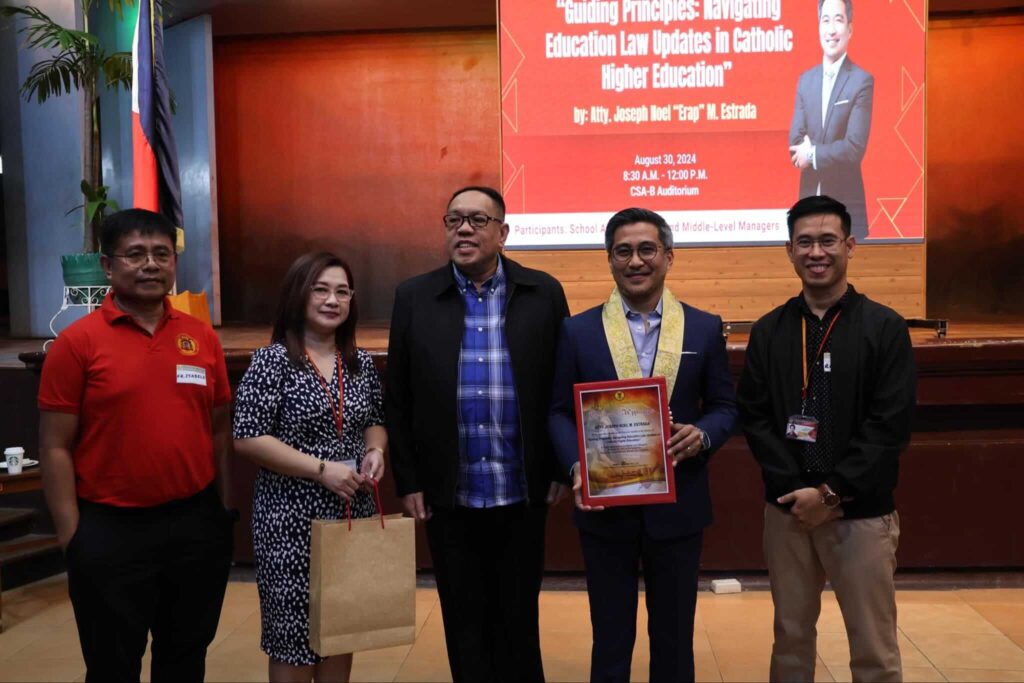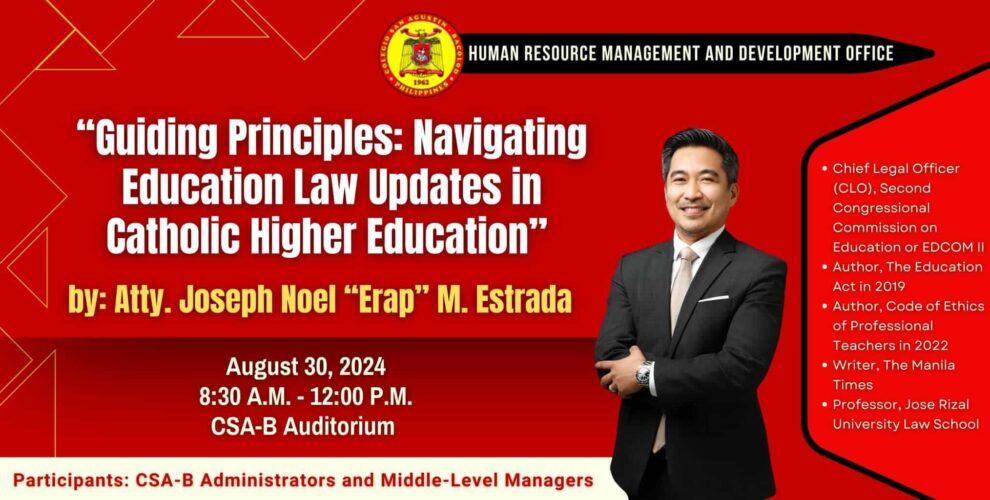“As part of their rights and duties to rear their children, parents’ primary responsibility is child discipline which includes character formation and teaching them how to be responsible and worthy members of the community.”
This was the opening statement of Atty. Joseph M. Estrada speaking before sixty-eight participants who included administrators and middle-level managers “Guiding on Principles: Navigating Education Law Updates in Catholic Higher Education” on August 30, 2024 at the CSA-Bacolod Auditorium.

The seminar, which was spearheaded by the Human Resource Management and Development Office, revolved around the partnership of the home and the school in the child’s character formation, no matter what age or level. Citing “in loco parentis”, Estrada emphasized the parental authority of a teacher in the form of support, education, instruction, correction and punishment but not corporal.
“The obligation of the school is for the students to obey rules. So, parents have to cooperate with the school in the implementation of the school’s curricular and co-curricular program,” emphasized Estrada as he discussed the students’ discipline. With its dual responsibility, such as, first, provision for opportunities for learning and second, helping them grow and develop into mature, responsible, effective and worthy citizens, the school has the right to exercise power over its students’ violation committed outside the school and beyond school hours.
Hence, in the event freedom and rights of the pupil or student is used as the reason of the violation, the school has to make the parents understand of the bilateral obligation of both home and school once a contract or agreement is signed during enrolment. Simply put, while the school provides needed tools and skills, the learner covenants to abide by the school’s requirements, rules and regulations.Moreover, the school provides a safe-learning environment or Safe Space Act, as to be reflected in the school’s handbook like policy on sexual harassment which includes undue exercise of power and authority manifested through sexually-charged conduct or one-filled with sexual undertones, citing Yap Chin Fah’s and Angeles-Sison’s cases.
Giving precautions to the teachers and authorities in school, Estrada cited Article 3, section 3 of the Code of Ethics for Professional Teachers which states, “Every teacher shall merit reasonable social recognition for which purpose he/she shall behave with honor and dignity at all times and refrain from such activities as gambling, smoking, drunkenness and other excesses, much less illicit relations.”
“However, whenever morality is in question, consider always the totality of circumstances principle,” concluded Estrada who, in defense of the school with its policies, rules and regulations, added, “the school has a juridical personality, the administrators would always do anything not to tarnish the name of the school, however, in the event, there is omission sacrificing justice, that is a big decision the school has to make.




